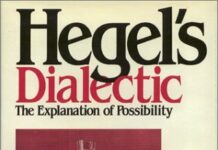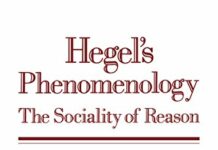
Ebook Info
- Published: 2013
- Number of pages: 228 pages
- Format: PDF
- File Size: 1.47 MB
- Authors: Terry Pinkard
Description
Terry Pinkard draws on Hegel’s central works as well as his lectures on aesthetics, the history of philosophy, and the philosophy of history in this deeply informed and original exploration of Hegel’s naturalism. As Pinkard explains, Hegel’s version of naturalism was in fact drawn from Aristotelian naturalism: Hegel fused Aristotle’s conception of nature with his insistence that the origin and development of philosophy has empirical physics as its presupposition. As a result, Hegel found that, although modern nature must be understood as a whole to be non-purposive, there is nonetheless a place for Aristotelian purposiveness within such nature. Such a naturalism provides the framework for explaining how we are both natural organisms and also practically minded (self-determining, rationally responsive, reason-giving) beings. In arguing for this point, Hegel shows that the kind of self-division which is characteristic of human agency also provides human agents with an updatedversion of an Aristotelian final end of life. Pinkard treats this conception of the final end of “being at one with oneself” in two parts. The first part focuses on Hegel’s account of agency in naturalist terms and how it is that agency requires such a self-division, while the second part explores how Hegel thinks a historical narration is essential for understanding what this kind of self-division has come to require of itself. In making his case, Hegel argues that both the antinomies of philosophical thought and the essential fragmentation of modern life are all not to be understood as overcome in a higher order unity in the “State.” On the contrary, Hegel demonstrates that modern institutions do not resolve such tensions any more than a comprehensive philosophical account can resolve them theoretically. The job of modern practices and institutions (and at a reflective level the task of modern philosophy) is to help us understand and live with precisely the unresolvability of these oppositions. Therefore, Pinkard explains, Hegelis not the totality theorist he has been taken to be, nor is he an “identity thinker,” à la Adorno. He is an anti-totality thinker.
User’s Reviews
Editorial Reviews: Review “A masterpiece of clear, scrupulous exposition and an exceptionally able defense of Hegel’s thought. It is, if anything, more interesting philosophically than the outstandingly accomplished Hegel exegesis that it also is…. Hegel’s Naturalism is as stunningly good a piece of systemiatic philosophy in relation to modern life as one is likely to find anywhere.”–Richard Eldridge, Notre Dame Philosophical Reviews”Pinkard’s book develops a powerful, attractive reading of Hegel’s conception of spirit. While offering a wealth of insights and novel perspectives on concrete details from different parts of Hegel’s system, it manages at the same time to make emerge a convincing overall picture of spirit as an open-ended, continuously struggling activity aiming at the final end of being at one with itself against all odds.” — Mind About the Author Terry Pinkard is Professor of Philosophy at Georgetown University; author of German Philosophy 1760-1860: The Legacy of Idealism, Hegel: A Biography and Hegel’s Phenomenology: The Sociality of Reason; and editor of Heinrich Heine on the History of Religion and Philosophy in Germany.
Reviews from Amazon users which were colected at the time this book was published on the website:
⭐Entirely satisfactory
⭐Unfortunately, there were no reviews available when I bought my copy. This is strictly undergrad material; nothing deeper. So beware. If you are familiar with Hegel stay clear of this book. It has a 2012 publication date but has no contemporary trends addressed. A good book for a junior in college. There could have been other avenues of addressing the topics; but the target audience might have been undergrads. They need books too. Not recommended to those who know Hegel’s work
Keywords
Free Download Hegel’s Naturalism: Mind, Nature, and the Final Ends of Life in PDF format
Hegel’s Naturalism: Mind, Nature, and the Final Ends of Life PDF Free Download
Download Hegel’s Naturalism: Mind, Nature, and the Final Ends of Life 2013 PDF Free
Hegel’s Naturalism: Mind, Nature, and the Final Ends of Life 2013 PDF Free Download
Download Hegel’s Naturalism: Mind, Nature, and the Final Ends of Life PDF
Free Download Ebook Hegel’s Naturalism: Mind, Nature, and the Final Ends of Life




